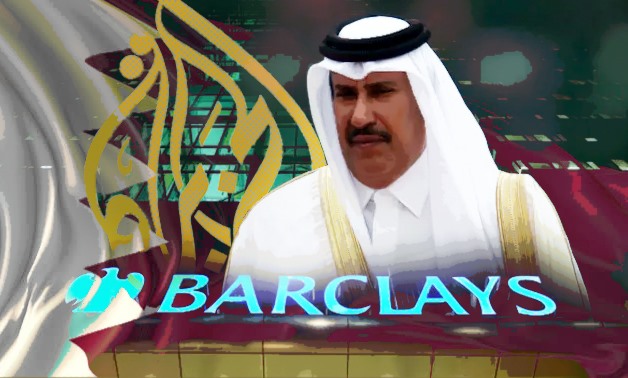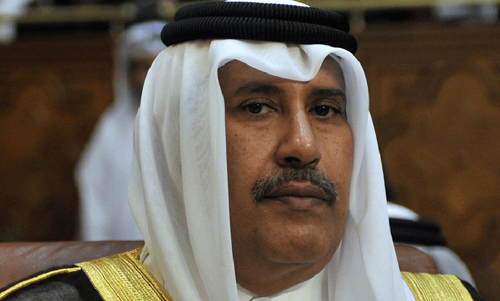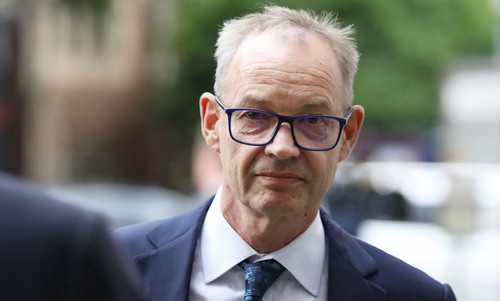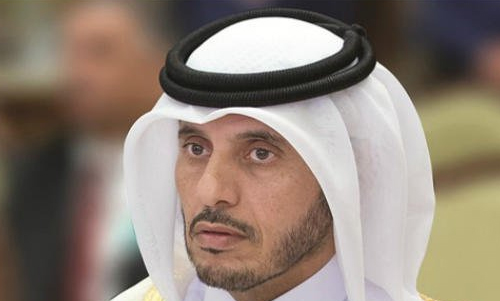
International media outlets covered the case extensively, but the Qatari media decided to remain silent – Photo by Egypt Today/Mohamed Zain
CAIRO – 18 February 2019: Qatari media have decided to skip on publishing news about the scandal of former Qatari Prime Mister Sheikh Hamad bin Jassim and Barclays.
Only Doha-based Al-Jazeera mentioned the subject once last November and Al-Sharq published an article in May under the title, “Barclays cleared of obtaining a Qatari loan,” and that was it.

Even Al-Jazeera’s reporting falsely said, “Bankers used side deals to “induce” the Qataris to invest, in a desperate attempt to keep the bank afloat, mentioning that their competitors Royal Bank of Scotland and Lloyds were forced to go “cap in hand” to the UK government.”
On Jan. 30, however, the Guardian reported that, “Barclays’ lawyers did not object to £322 million in fees paid to Qatar and that the bank’s legal team had “persuaded themselves” that the 2008 agreement was lawful.”
According to The Guardian, the Qataris took full advantage of this, with Jassim pushing to be the greatest beneficiary as during the trial in Jan., the prosecution told the court that the then Qatari Prime Mister demanded a personal fee for investing in Barclays.
Richard Boath, an executive in Barclays’ investment banking division, told a senior lawyer at Barclays that that he would “start to tremble” when he reread documents relating to a deal that Barclays executives struck with Jassim to secure Qatari investment in the bank in exchange for a personal commission.

Boath and three other former Barclays executives, including the then chief executive, John Varley, are accused of conspiring to secretly pay Qatar £322m, in return for billions of pounds of investment in the bank, thereby allowing it to avoid a government bailout during the 2008 financial crisis.
This came during the fourth day of the trial at London’s Southwark crown court.
Moreover, Boath has waned his colleagues that Qatari investors were pushing “quite aggressively” to be paid for a controversial services contract at the height of the financial crisis.
He added that was growing impatient with the bank, after it apparently missed the deadline to pay for the first of two advisory service agreements struck during 2008.
Qatari Prime Minister Abdullah bin Nasser bin Khalifa Al Thani has demanded a personal fee for “investing in Barclays during an emergency capital call in 2008, in addition to the extra commission paid by the bank to the Gulf state’s sovereign wealth funds,” a Financial Times report said on Jan. 25.

The Guardian further reported that the prosecutors for the Serious Fraud Office presented internal emails and phone calls to a jury at Southwark Crown Court, detailing discussions on how the bank wanted to disclose Sheikh Jassim’s planned stake in the bank via his British Virgin Islands-based investment vehicle, Challenger.
“The court was also presented with an email exchange between Boath and Jassim’s head of legal, Ahmad al-Sayad, where Sayad told him that “HE (His Excellency) wants to have a very low profile” and “would prefer that HE’s BVI-based investment vehicle be our fifth investor and sign its own subscription agreement.”
According to The Guardian, Boath in turn “reminded him that we would be required to disclose the identity of this vehicle”. Sayad responded that Barclays “should find a way to finesse this in order to keep HE under the radar”.
In a separate email read to the jury on Monday, Boath said Sayad said he was “happy” with disclosure of the investment as long as there “wasn’t evidence” as to “precisely who owned the… vehicle”.
But Shepherd insisted in a call that there was a general obligation for fair disclosure. “We have to tell the truth, not only in circumstances where we think we wouldn’t get found out, we have to tell the truth because that’s what we have to do.”
International media outlets covered the case extensively, however, the Qatari media pretended that it is not that of a big story that a former prime minister is involved in such scandal that is considered the first criminal trial of top UK bank bosses since the financial crash.
Former Barclays senior executives arranging the fundraising as the financial crisis began to bite admitted that it was “dodgy” and “wrong” for a sitting prime minister to take a fee, a jury heard during the third day of a landmark fraud trial at London’s Southwark Crown Court. One of them discussed “the jeopardy that we’re rumbled”, according to the Financial Times.
Comments
Leave a Comment